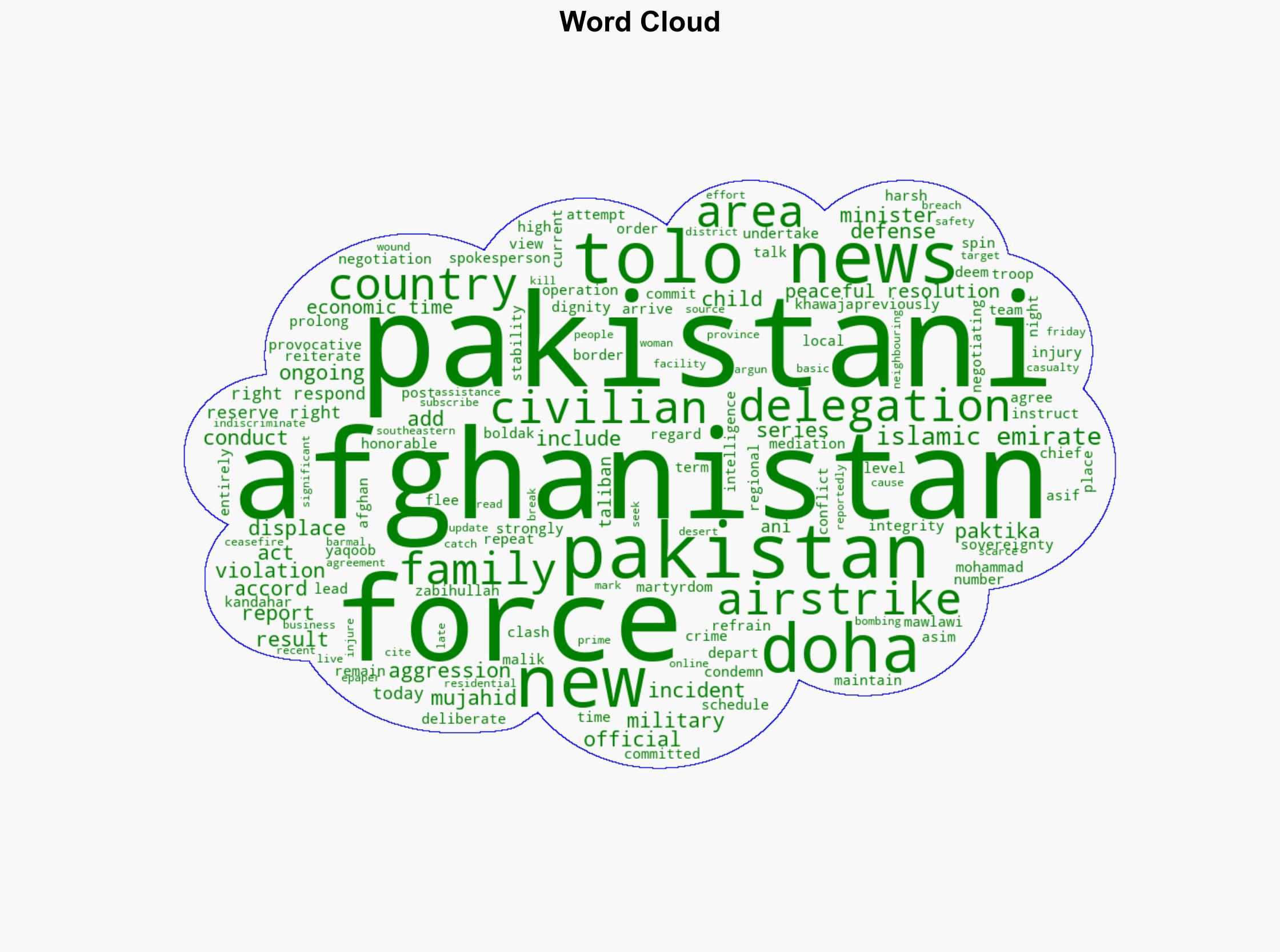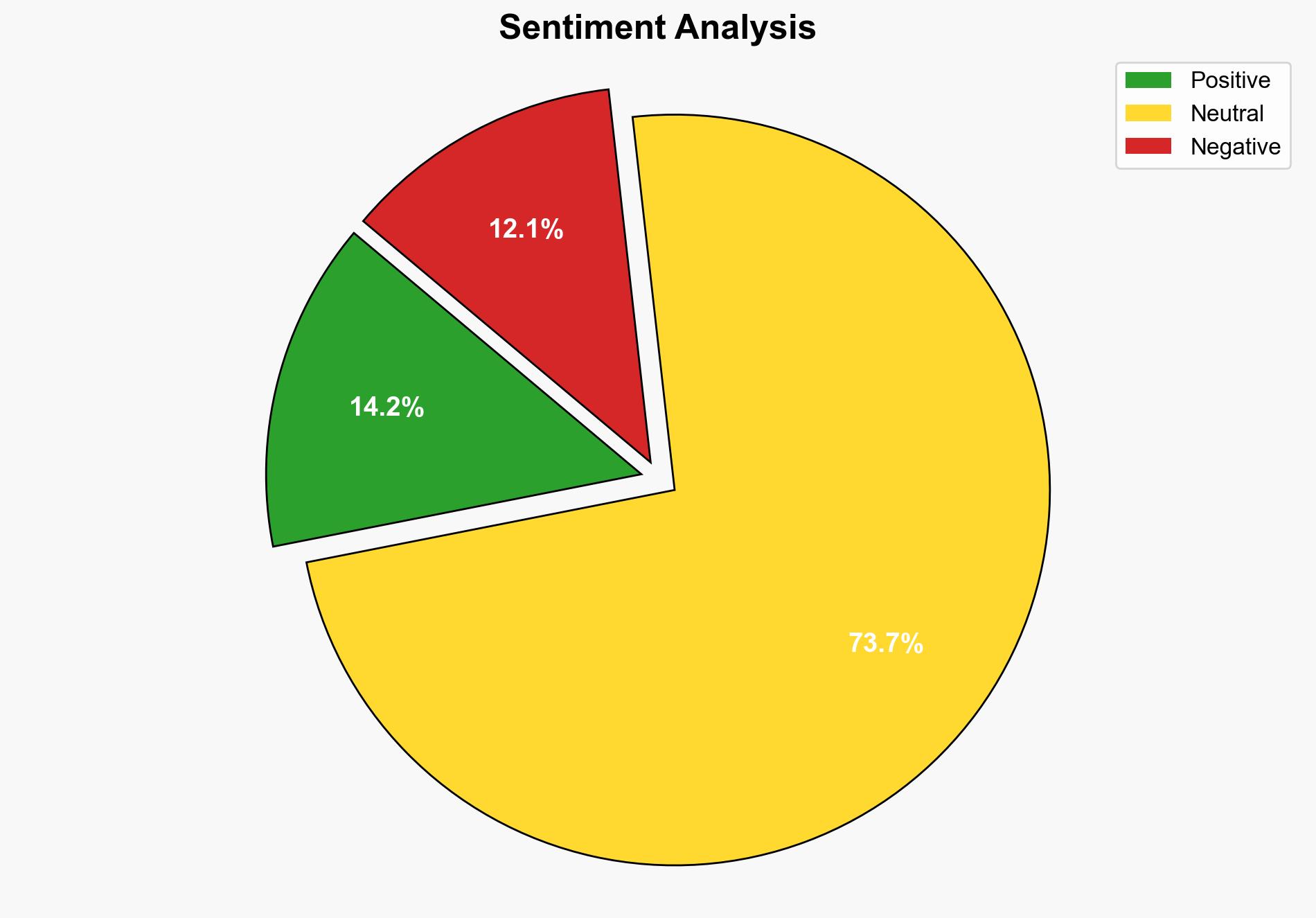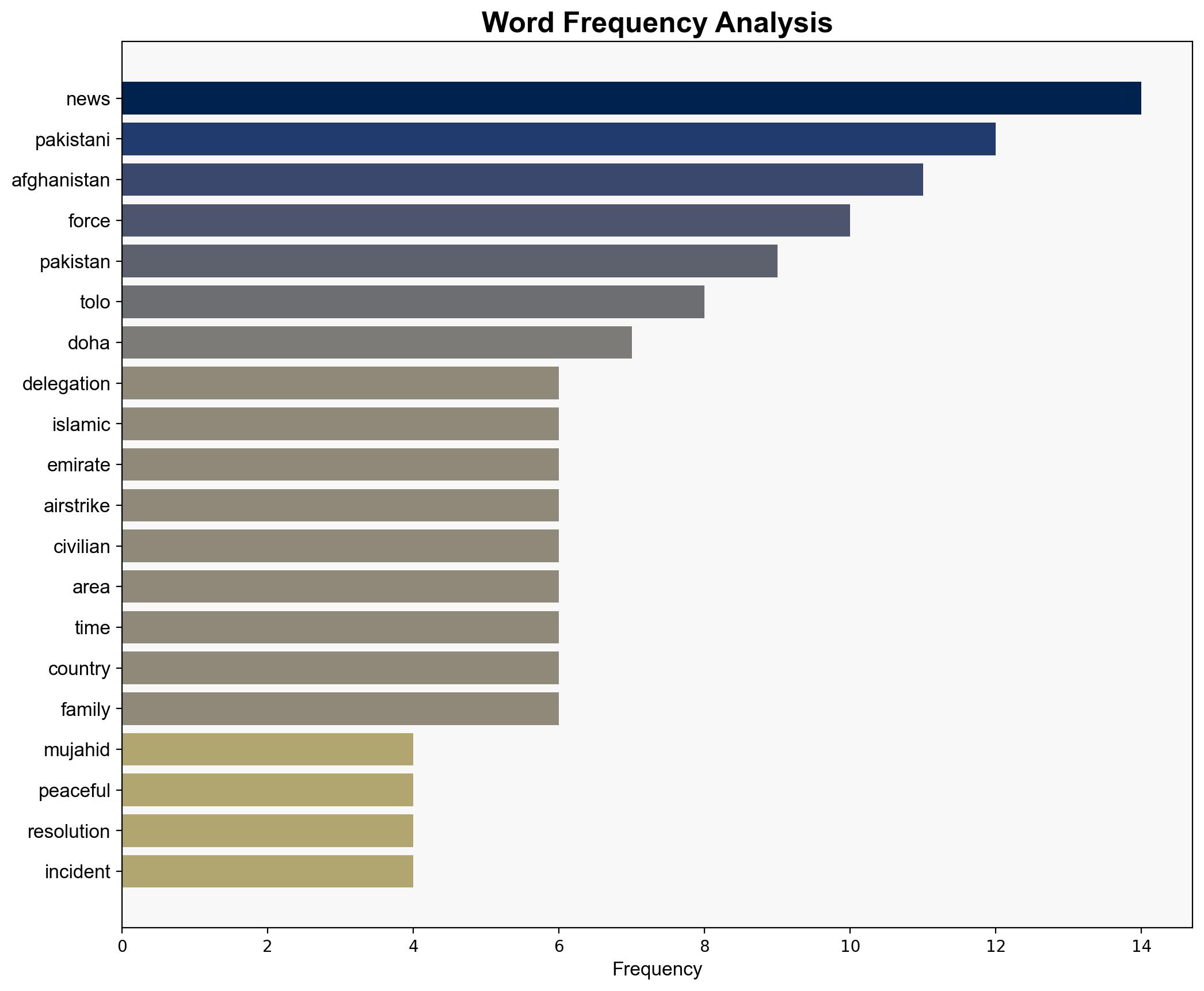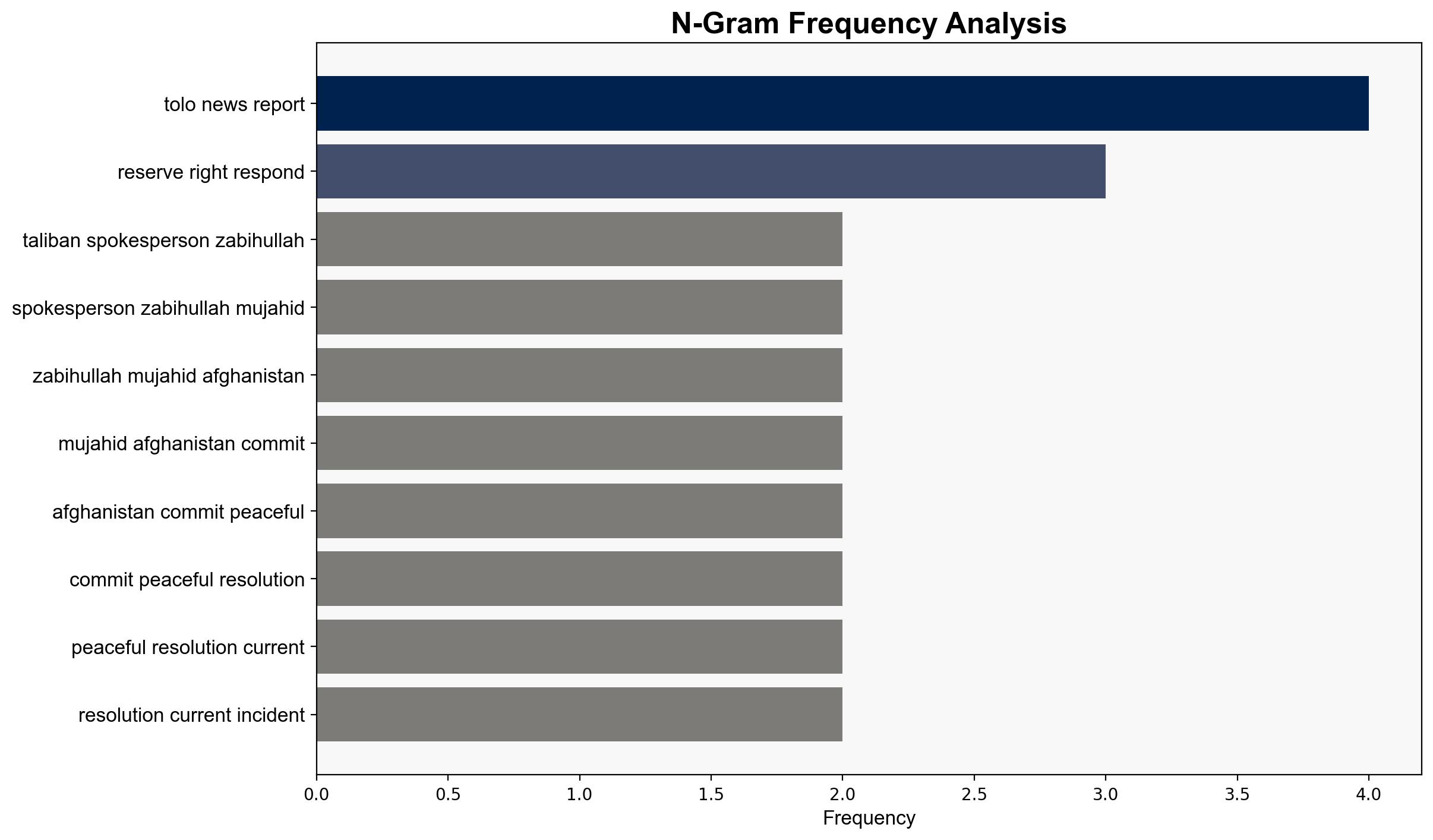Afghanistan ‘reserves the right to respond’ to Pakistan airstrikes Taliban spokesperson says – The Times of India
Published on: 2025-10-18
Intelligence Report: Afghanistan ‘reserves the right to respond’ to Pakistan airstrikes Taliban spokesperson says – The Times of India
1. BLUF (Bottom Line Up Front)
The most supported hypothesis is that the recent airstrikes by Pakistan in Afghanistan’s Paktika province are a deliberate attempt to assert military pressure on the Taliban government, potentially to gain leverage in ongoing negotiations. Confidence in this assessment is moderate due to the complexity and opacity of regional dynamics. It is recommended to enhance diplomatic engagement with both parties to de-escalate tensions and prevent further civilian casualties.
2. Competing Hypotheses
1. **Hypothesis A**: Pakistan’s airstrikes are a strategic maneuver to pressure the Taliban into concessions during peace negotiations, leveraging military action to influence diplomatic outcomes.
2. **Hypothesis B**: The airstrikes are a reactive measure by Pakistan in response to perceived threats from Taliban-aligned groups near the border, aiming to neutralize potential security threats.
Using ACH 2.0, Hypothesis A is better supported due to the timing of the airstrikes coinciding with scheduled peace talks in Doha and the presence of high-level delegations from both countries.
3. Key Assumptions and Red Flags
– **Assumptions**: It is assumed that Pakistan’s military actions are directly linked to diplomatic strategies rather than purely defensive measures. Another assumption is that the Taliban’s public commitment to peace is genuine and not a strategic facade.
– **Red Flags**: The lack of independent verification of the airstrike targets and casualties raises questions about the accuracy of the reported events. Additionally, the repeated emphasis on peace by the Taliban may mask internal divisions or alternative agendas.
4. Implications and Strategic Risks
The continuation of airstrikes risks escalating into a broader conflict, destabilizing the region further. There is a potential for increased displacement and humanitarian crises, exacerbating existing vulnerabilities. Economically, prolonged instability could deter investment and aid, while geopolitically, it may draw in external powers with vested interests, complicating resolution efforts.
5. Recommendations and Outlook
- Engage in multilateral diplomacy involving regional stakeholders to mediate tensions and establish a ceasefire.
- Enhance intelligence-sharing mechanisms to verify claims and prevent misinformation.
- Scenario Projections:
- **Best Case**: Successful mediation leads to a ceasefire and renewed peace talks.
- **Worst Case**: Escalation into a full-scale conflict with cross-border implications.
- **Most Likely**: Continued skirmishes with intermittent diplomatic engagements.
6. Key Individuals and Entities
– Zabihullah Mujahid
– Mawlawi Mohammad Yaqoob Mujahid
– Khawaja Asif
– Asim Malik
7. Thematic Tags
national security threats, regional stability, conflict resolution, diplomatic negotiations





